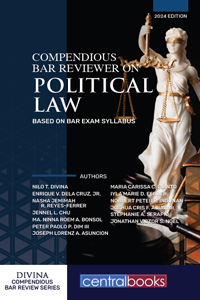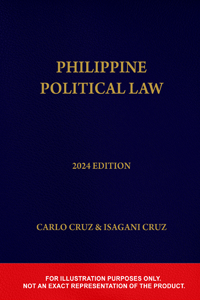- Philippine Administrative Law
- Carlo L. Cruz
- Publisher: Central Book Supply, Inc.
- ISBN: 978-971-691-582-2
- No. of Pages: 701
- Size: 6"x9"
- Edition: 2007 Edition
Description:
THE TASK of government has, through the years, grown to be both tedious and complicated, owing to the influx of an increasing number of problems which today afflict Philippine society. Thus, where the main concern of government was once simply to provide the people with their basic requirements of food, water, clothing, shelter and peace and order, it now must deal with pollution, population control, traffic management, natural calamities like typhoons and eruptions of volcanoes, collection of taxes and a host of other similar problems as well, all of which, needless to state, require governmental regulation or action. The traditional departments of government have, quite understandably, been unable to properly address their attention to and effectively cope with these difficulties. Hence, the establishment of a similarly increasing number of administrative bodies basically designed to attend to these problems, thus enabling the major departments of government to concentrate on matters of national importance. Created either by the Constitution or by statute, these administrative bodies are intended to assist in the task of government.







